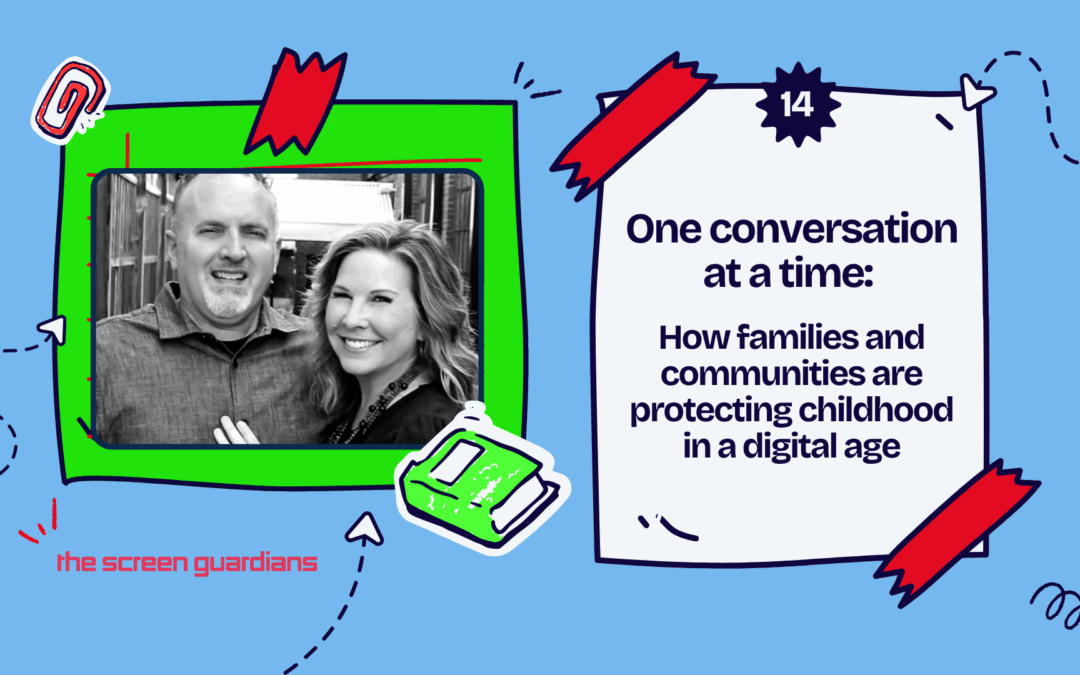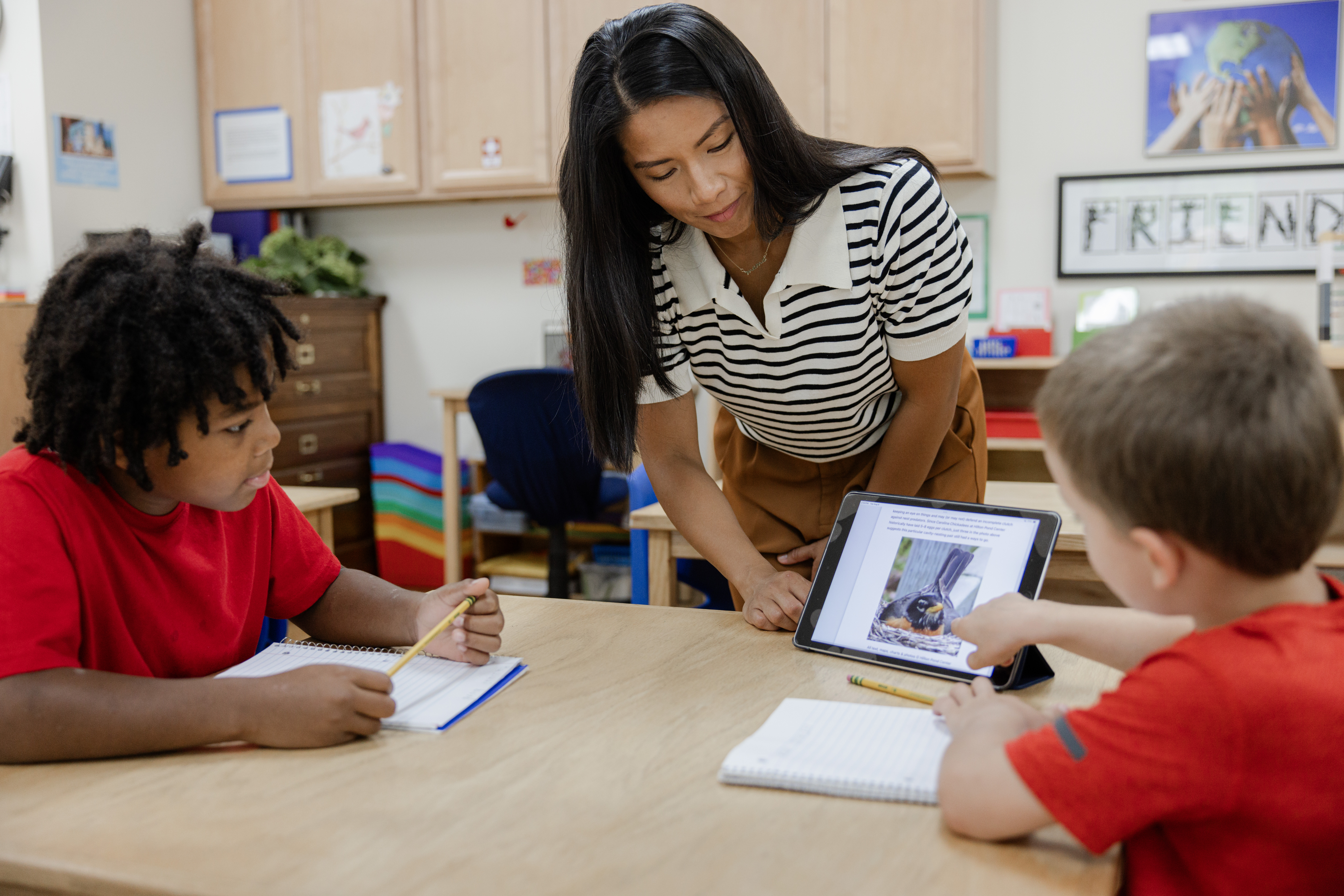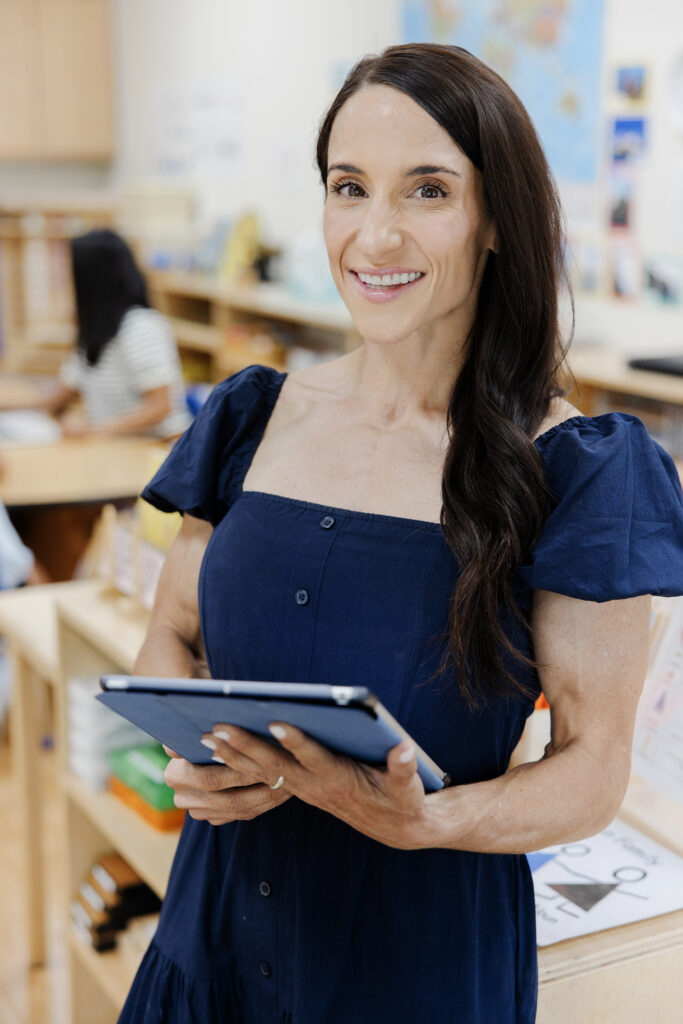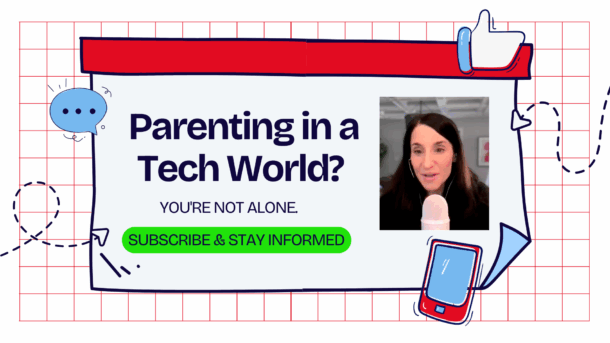There are some conversations that feel too big to begin.
Talking about the digital world and our kids—what they’re exposed to, what they’re carrying, how their brains and hearts are shaped by screens—that’s one of those conversations. It’s big. It’s overwhelming. And for parents and educators alike, it can feel like we’re already behind.
But today, I want to offer you a different story. A slower, steadier one. A story about ordinary people doing sacred work in their homes, schools, and churches…one conversation at a time.
Recently, I sat down with Sarah Siegand, an author, speaker, and co-founder of Parents Who Fight. For nearly a decade, Sarah and her husband have quietly and consistently helped thousands of families navigate digital safety—not through fear or shame, but through wisdom, community, and deeply-rooted love.
Sarah joined me on the Screen Guardians podcast on the day her new book launched. It’s called Next Gen Tech Reset, and it’s designed for church and youth leaders who want to reimagine how we engage with teens—not just in ministry, but in a world where algorithms, anxiety, and constant comparison have become the norm.
This post is a reflection on that conversation—not a summary, but a story of hope for parents, educators, and leaders who want to begin again. Who want to do it differently, starting now.
Table of Contents
It began with a playground conversation
Sarah and her husband weren’t planning to start a movement.
It started simply enough. Their boys were in public school—what she describes as “Mayberry-style,” the kind of place where you walk to school and know your neighbors. But then, her kids began coming home with stories. Graphic stories. Stories no first grader should know.
And while the Siegands had limited tech in their home, they began to see what many of us discover late: it’s not just what our kids are exposed to, it’s what their friends are bringing into every shared space.
Rather than isolate or fear, Sarah’s instinct was to gather. They pulled together a parent meeting at school. Then one at church. Then another. Parents were hungry for help—for language, strategies, and support.
That’s how Parents Who Fight began—an act of service from one family to their community.
Building guardrails without guilt
If you’ve ever felt like it’s “too late” to change course—maybe your middle schooler is already on social media, or your high schooler has had an iPhone for years—Sarah’s message is simple:
“It’s never too late to go backwards.”
Not in shame. Not in panic. But in reflection. With humility.
She encourages parents to begin by opening a conversation—not with a heavy hand, but with curiosity and kindness. Try saying something like:
“As I learn more about how tech is affecting your generation, I realize there are some things I might do differently. I’d love to talk about that together.”
Even better? Ask your child what they wish you had done differently. Invite their insight…then listen more than you speak. That’s how safety starts.
The power of walking together
One of the most powerful truths Sarah shared is that our kids are networked—to each other, to trends, to tech hacks and workarounds. They’re constantly learning from one another.
But parents? We’re often isolated.
We don’t need more rules. We need more relationships—with other parents who are asking the same questions and trying to make the same brave choices.
“Community is where the strength comes from. Decisions multiply when we’re doing them together.” — Sarah Siegand
Whether through a church small group, a school PTA, or an informal text thread with a few trusted friends, gathering parent voices matters. Start small. Share a resource. Host a conversation. Ask your school or church leaders, “How can I help?” rather than “Why aren’t you doing more?”
That spirit of partnership changes everything.
For schools and churches: four small steps with a big ripple effect
In her newest book, Sarah shares what she calls Four Norms for the Church, but they apply to any community seeking to walk wisely with families in a digital age:
- Pray – Ask honestly: Is our technology use honoring what we value? Seek spiritual clarity before jumping to strategy.
- Pace – Say no to the cultural rush. Delay what can be delayed. Choose slow, strong roots over rushed adaptation.
- Protect – Use tools already at your fingertips—parental controls, Wi-Fi settings, screentime limits. Not because your child is untrustworthy, but because the digital world is unfiltered.
- Partner – Normalize conversations between families. Align with other parents. Respect each other’s home rules. Walk this road together.
What churches can do differently (and beautifully)
Digital disciplines aren’t just about what we’re avoiding—they’re about what we’re making room for: eye contact, belonging, spiritual formation, relational growth.
In their youth ministry, Sarah’s church began clearing phones from gatherings—not legalistically, but lovingly. They saw visitor teens who once hid behind screens start stepping into conversations, making friends, and feeling seen.
Because that’s the heart of it: we want kids to know they are seen. Safe. Wanted. Capable of connection—even when it’s hard.
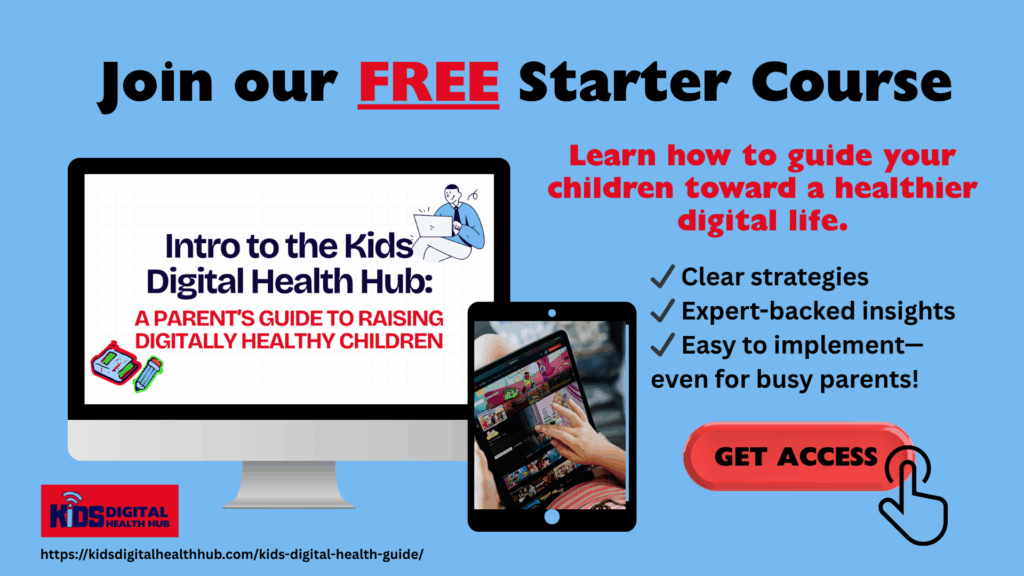
Choosing not to be swept away
As we closed our conversation, Sarah left us with this:
“We have a choice.”
It might not always feel like it. Tech feels like a tidal wave some days. Our kids are submerged in it. As parents or teachers, we’re exhausted by it.
But inside our homes, we still get to make small, sacred choices.
- Leave the phones in the car at dinner.
- Take one evening a week screen-free.
- Ask for help.
- Talk to your kids about what’s hard.
There is power—and fruit—that comes from those humble beginnings.
Final thoughts
We don’t need to be perfect parents or expert educators to create safer, stronger digital spaces for our kids.
We need to be present.
We need each other.
And we need stories like Sarah’s to remind us: protecting childhood in a digital age isn’t about going it alone—it’s about standing side-by-side, candlelit, and willing to go slow.
Because childhood is worth protecting.
And our kids are worth the conversation.
Interested in Sarah’s new book?
Visit Parents Who Fight to learn more or purchase Next Gen Tech Reset on their website.

To connect with Sarah and her work:
- Instagram & X: @parentswhofight
- Website: parentswhofight.com
Jesse & Sarah were featured in the Documentary “Childhood 2.0,” which has over 4 million views and is free to watch on YouTube.
Let’s keep showing up for this generation.
Let’s keep choosing what matters most.

